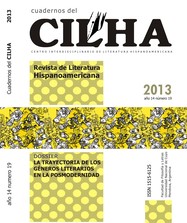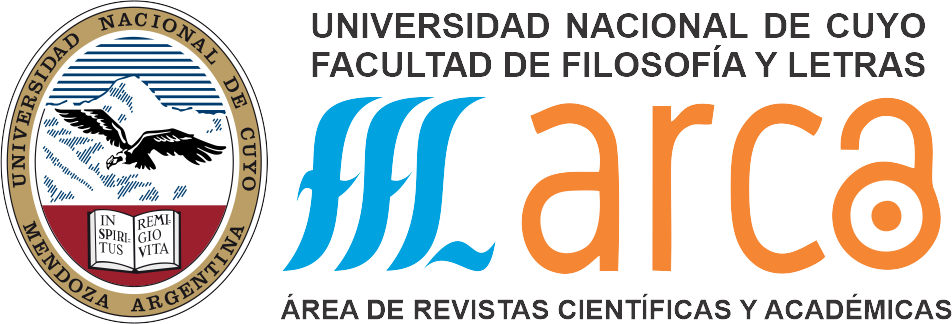Comedy from Pre-Modernism to Postmodernism: from Nicolás Granada to Javier Daulte
Keywords:
Pre-Modernism, Postmodernism, Vaudeville, Light Comedy, DaulteAbstract
Since its origins, Argentine comedy has been related to history, and revealed itself as a strongly didactic genre. This can already be observed in El hipócrita politico (anonymous 1820), the first River Plate comedy of manners. From that moment on, the genre was frequently used to debate the political situation. As time went by, the genre changed without loosing its didactic nature, incorporating the innovations introduced by Gregorio de Laferrère and the "sainete comedy". During the ‘50s and ‘60s it reached a climax through the revival of vaudeville techniques. The fact that realism has always been predominant in our theater, determined that comedy was considered merely popular and light, and that its productivity was exhausted in the ‘60s.
Nevertheless, its productivity as intertext has not disappeared, as we can see in Javier Daulte’s plays, although the author states that theater should not serve any purpose, which implies the denial of the modern idea of engaged literature. Theater critics and historians have underlined Daulte’s intertextual work with genres such as detective fiction, science fiction, melodrama. But comedy is never mentioned, although it appears at least in two plays: Nunca estuviste tan adorable and La felicidad. Especially in the last one, a series of techniques help to place family once more as the dramatic center of the play and, in spite of the author’s statements, it has a notorious didactic penchant.
References
Bigsby, C.W.E. "La política de la cultura popular". En: C.W.E Bigsby (comp.) Examen de la Cultura Popular. México: Fondo de Cultura Económico, 1982.
Bosh, M.G. Historia de los orígenes del teatro nacional y la época de los Podestá. Buenos Aires: Solar/Hachette, 1969.
Castagnino, Raúl H. Literatura dramática Argentina. Buenos Aires: Pleamar, 1968. Bentley, Eric. La vida del drama. Buenos Aires: Paidós, 1982.
Daulte, Javier. "Contra el teatro de Tesis", Teatro XXI. Revista del Getea, Año XI, n. 9. Buenos Aires: Facultad de Filosofía y Letras, 2005.
Daulte, Javier. "Nunca estuviste tan adorable". En: Teatro 2. Buenos Aires: Corregidor, 2007. Daulte, Javier. "La Felicidad". En: Teatro 3. Buenos Aires: Corregidor, 2010.
Dubatti, Jorge. "El teatro francés en la Argentina (1880-1900)". En: De Sarah Bernhardt a Lavelli. Teatro francés y teatro argentino 1890-1990). Buenos Aires: Galerna, 1993.
Echagüe, Juan Pablo. Una época del teatro argentino (1904-1918). Buenos Aires: Editorial América Unida, 1926.
Heredia, Florencia. "La producción dramática de Javier Daulte: parodización genérica y exacerbación del sentimiento". Teatro Daulte 2. Buenos Aires: Corregidor, 2007: 17-45.
Heredia, Florencia. "El teatro de Javier Daulte o la pregunta por lo humano". En: Teatro Daulte 3. Buenos Aires: Corregidor, 2010: 19-47.
Jitrik, Noé. El mundo del ochenta. Buenos Aires: Centro Editor de América Latina, 1982: 11-31.
Pellettieri, Osvaldo. "Estudio preliminar". La pata de la Sota. Ya nadie recuerda a Frederic Chopin. Buenos Aires: Clásicos Huemul, 1985.
Pellettieri, Osvaldo. "Intertextos y creación en el teatro de Gregorio de Laferrère". En: De Sarah Bernhardt a Lavelli. Teatro francés y teatro argentino 1890-1990. Buenos Aires: Galerna/Revista Espacio, 1993.
Pellettieri, Osvaldo. "Modernidad y Posmodernidad en el teatro Argentino Actual". En: El teatro y su crítica. Buenos Aires: Galerna, 1998: 147-167.
Pellettieri, Osvaldo. Cien años de teatro argentino. Del Moreira a Teatro Abierto. Buenos Aires: Galerna/IITCTL, 1990.
Romero, José Luis. El desarrollo de las ideas en la sociedad argentina del siglo XX, Buenos Aires: Ediciones Solar, 1983.
Sarlo, Beatriz; Altamirano, Carlos. "La Argentina del centenario: campo intelectual, vida literaria y temas ideológicos". En: Ensayos argentinos, Buenos Aires: Centro Editor de América Latina, 1983: 69-107.
Marina. "La comedia en Buenos Aires: circulación y desplazamientos", Teatro. XXI Revista del GETEA, a. I, n. 1, Buenos Aires: Facultad de Filosofía y Letras (UBA), 1995.
Sikora, Marina. "La aparente homogeneidad de la dramaturgia emergente: Bar Ada y Martha Stutz", Teatro XXI. Revista del GETEA, a. III, n. 5. Buenos Aires: Facultad de Filosofía y Letras, 1997.
Sikora, Marina. "Abel Santa Cruz: un epígono de la comedia finisecular". En: Indagaciones sobre fin de siglo. Buenos Aires: Galerna, 2000.
Sikora, Marina. "La comedia. Concepción de la obra dramática". En: Historia del Teatro Argentino en Buenos Aires. La emancipación cultural (1884-1930). Vol II. Buenos Aires: Galerna, 2002: 418-435.
Urquiza, Juan José de. Enrique García Velloso. Buenos Aires: Ediciones Culturales Argentinas, 1963.
Viñas, David. "Armando Discépolo: Grotesco, inmigración y fracaso". En: Obras escogidas. Buenos Aires: Ed. Jorge Alvarez, 1969.





















